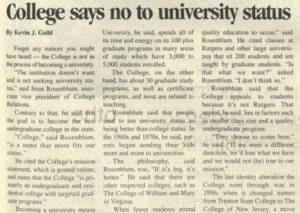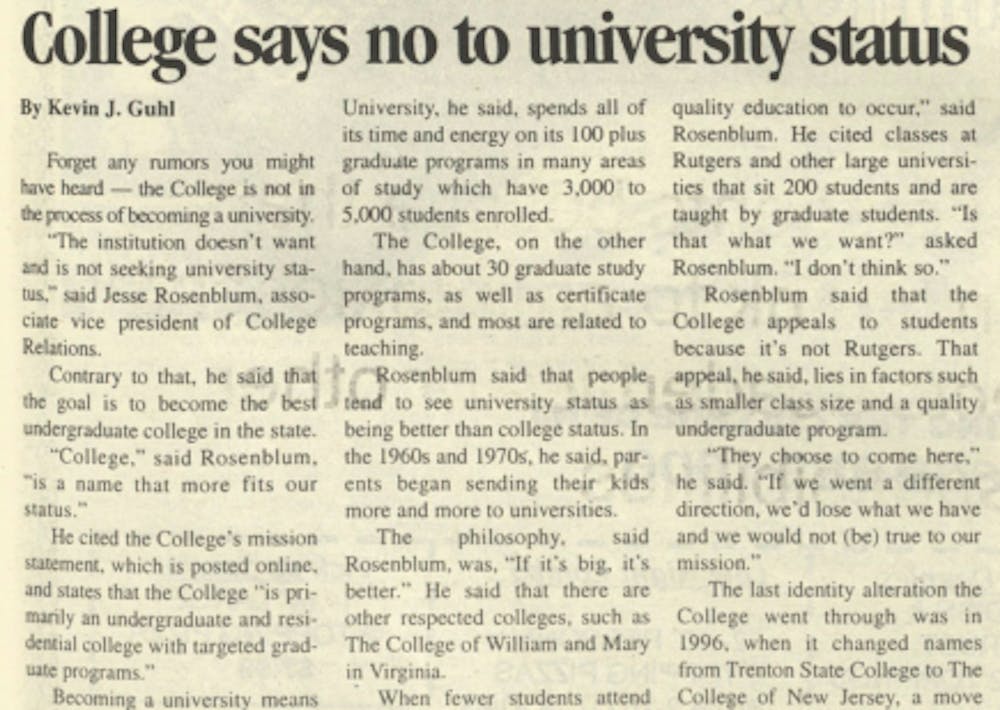By Jane Bowden
Features Editor
It’s hard to imagine this institution as anything but a college, but in a February 2002 issue of The Signal, a reporter wrote about rumors of the College becoming a university and why the administration said that would never happen.

Forget any rumors you might have heard — the College is not in the process of becoming a university.
"The institution doesn't want and is not seeking university status," said Jesse Rosenblum, associate vice president of College Relations.
Contrary to that, he said that the goal is to become the best undergraduate college in the state.
"College," said Rosenblum, "is a name that more fits our status."
He cited the College's mission statement, which is posted online, and states that the College "is primarily an undergraduate and residential college with targeted graduate programs."
Becoming a university means expanding the graduate programs, and Rosenblum said that the College does not foresee this happening.
Instead, the College plans a constant refining of its undergraduate programs.
Rosenblum said that the College has the facilities for this and is getting more.
"Should we be like Rutgers?" asked Rosenblum. Rutgers University, he said, spends all of its time and energy on its 100 plus graduate programs in many areas of study which have 3,000 to 5,000 students enrolled.
The College, on the other hand, has about 30 graduate study programs, as well as certificate programs, and most are related to teaching.
Rosenblum said that people tend to see university status as being better than college status. In the 1960s and 1970s, he said, parents began sending their kids more and more to universities.
The philosophy, said Rosenblum, was, "If it's big, it's better." He said that there are other respected colleges, such as The College of William and Mary in Virginia.
When fewer students attend the big universities, Rosenblum said, they are left with lots of empty classrooms and space.
In order to fill that space with more students, these universities may drop entry requirements.
The College's goal, he said, is to have a fine undergraduate program and maintain high standards. "Why should we dilute it?" asked Rosenblum.
"There is an optimum size for quality education to occur," said Rosenblum. He cited classes at Rutgers and other large universities that sit 200 students and are taught by graduate students. "Is that what we want?" asked Rosenblum. "I don't think so."
Rosenblum said that the College appeals to students because it's not Rutgers. That appeal, he said, lies in factors such as smaller class size and a quality undergraduate program.
"They choose to come here," he said. "If we went a different direction, we'd lose what we have and we would not (be) true to our mission."
The last identity alteration the College went through was in 1996, when it changed names from Trenton State College to The College of New Jersey, a move biology professor Edward Rockel described as occurring with "no forewarning."
Rosenblum said that the reason for that name change was to lessen the emphasis on just Trenton and increase the scope to all of New Jersey, since students come from all over the state and beyond.
"We're not a localized institution," said Rosenblum.







